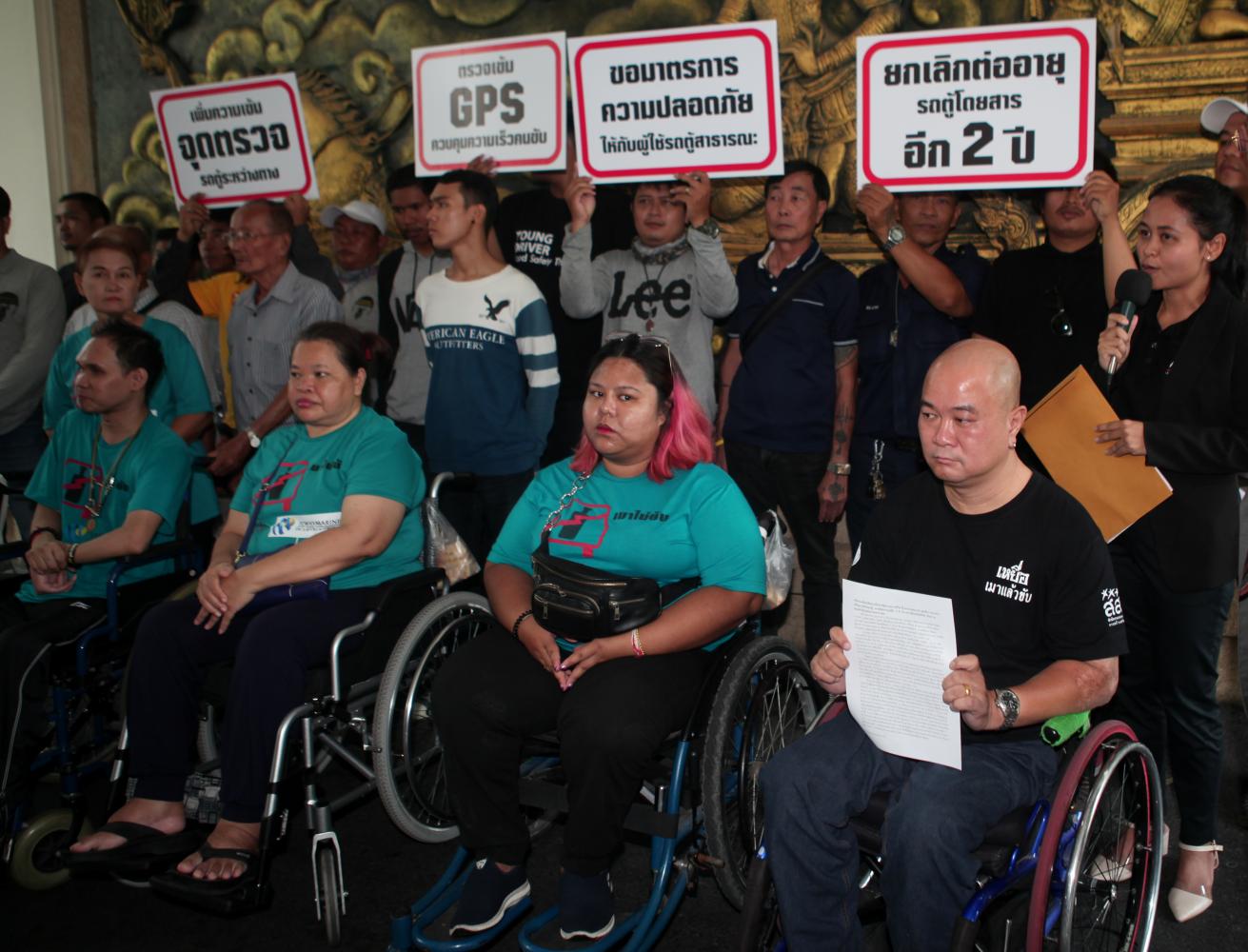
Activists have banded together to oppose the Transport Ministry allowing old public vans to stay on the road, saying the measure undermines road safety.
More than 30 members of a drink-driving victims network and quality of life improvement group handed an open letter opposing the decision to Transport Minister Saksayam Chidchob on Tuesday.
Jessada Yamsabai, head of a network affiliated to the Don't Drive Drunk Foundation, said public vans which are more than 10 years old should be taken off the road and replaced with minibuses by October in accordance with the policy launched by the previous government.
Mr Saksayam last week said the compulsory replacement would no longer stand. Instead, the owners of the vans would have the option of continuing their operations for another two years, providing the vehicles pass a safety check, before switching to the minibuses.
The minister said the economic cost of mandatory replacement would push up fares and cause the operators financial problems.
The network made its stand in the wake of Sunday's passenger van crash in Sa Kaeo which killed 12 Lao migrant workers and their Thai driver. The van carrying them crashed into a lorry in the early hours of Sunday near Wang Sombun hospital.
Mr Jessada insisted that even though the vans are equipped with GPS speed-monitoring systems, some drivers turn off the device and drive at high speeds in order to make as many shuttle rounds as possible.
"The drivers become exhausted and fall asleep at the wheel," he claimed.
Road safety depends largely on the quality of vehicles, according to Mr Jessada.
He said strong and suitably built public vehicles can save commuters' lives in accidents.
Citing research by the Thailand Accident Research Centre, Mr Jessada said minibuses are installed with safety features which enable passengers to escape more easily during emergencies.
"The Transport Ministry should review these public van measures as they're backward," he said.
Kruamart Srijan, coordinator of the quality of life improvement group, said the government must not overlook the importance of using the right type of vehicles to serve passengers.
"The authorities also need to conduct stringent maintenance of public transport vehicles at least every six months," he added.